Taking a bath together is still only option for Barnet rugby players until new clubhouse is built
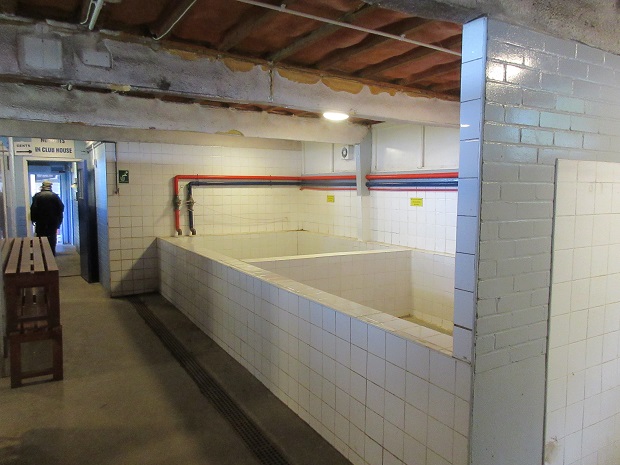
Having a wash down after a rugby match in Barnet can be quite a spectacle to behold. Mud-splattered players are still having to jump into one of two huge communal baths inside their dilapidated clubhouse at the Byng Road playing fields.
Images of rugby and football players washing themselves down together in a sea of steaming, soapy water amid plenty of bubbles were a regular sight during post-match celebrations until the 1960s and 1970s.
But with the spread of the HIV epidemic in the 1980s – and concern about blood infections – the idea of a communal wash down was increasingly frowned upon, and most clubs dropped the practice almost immediately and installed showers.
Barnet Elizabethans Rugby Club is desperate to rebuild its antiquated clubhouse and meet the hygiene standards required by the Rugby Football Union.
After having tried for 30 years to raise sufficient money, a new building is finally being planned thanks to the backing of a significant charitable donation through the Barnet Recreational Trust.
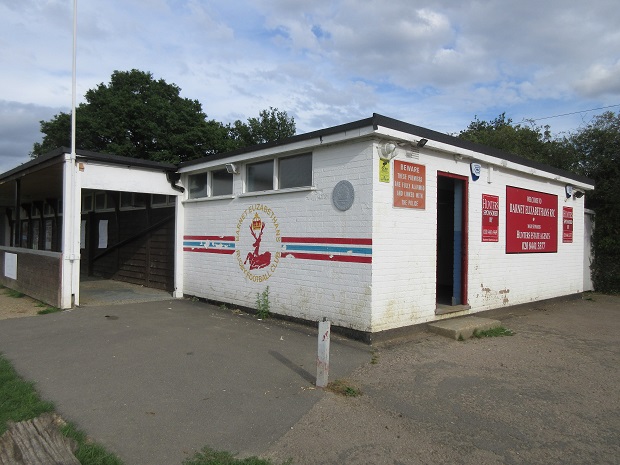
Barnet Elizabethans are the only rugby club in Hertfordshire and North London where players are left with no choice but to clean up in communal baths – the only other known example was at Harpenden where the cub replaced its communal baths ten years ago.
All being well Barnet’s amateur club, run by volunteers, hopes to submit a planning application by January or February next year for a new two-storey clubhouse with eight self-contained changing rooms on the ground floor – one for each team from the club’s four pitches. Each changing room would have its own internal shower block.
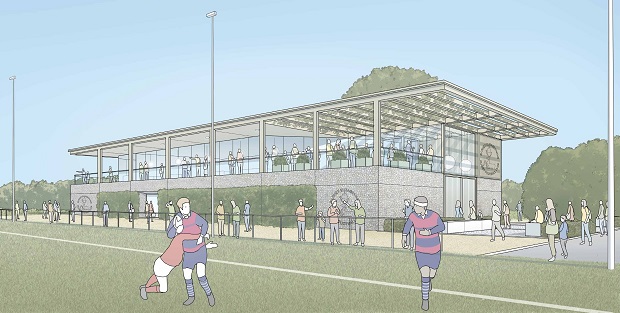
There would be a large flexible area on the first floor where there would be ample space for club events and hosting other community activities and functions as well as a balcony overlooking the pitches.
Club director Alex Bell said the health and welfare of players was of paramount importance for the club and the only answer was to replace the existing clubhouse which was built in 1957 and is way out of date in its facilities.
“Players do accept that a communal bath is all that we can offer at the moment, but the changing area is for men only and does not meet today’s hygiene standards or the current health and safety regulations.”
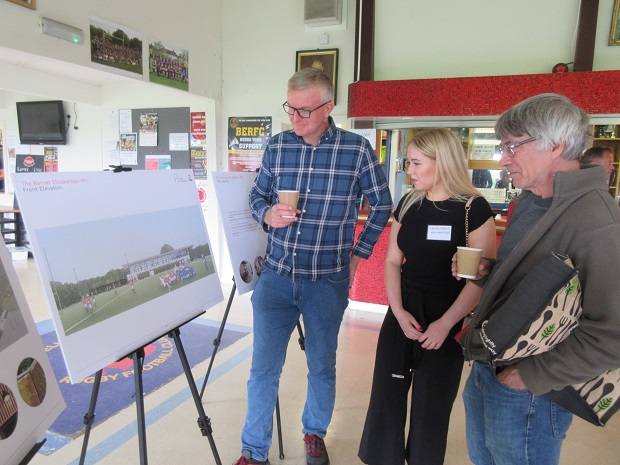
Mr Bell explained the plans when the club held an open day for nearby residents and other users of the Byng Road playing fields and open space. (From left to right, Alex Bell, Hannah Gardener of architects HLM and Tony Swingler, a plot holder at the neighbouring Byng Road allotments).
Currently Barnet Elizabethans have no secure changing room either for women or children and the lack adequate facilities is all the more pressing given that at weekends, and often on weekday evenings, the playing fields are a hive of activity hosting matches for 75 adult players, 350 children and a newly formed women’s team.
Another priority during the improvement of the clubhouse would be to relay the club’s three main rugby pitches, two of which have not been improved since they were laid in 1957 on a clay base which can turn into a bog in winter and then bake hard in the summer and become unplayable.
As part of the ground improvements, the club would install an all-weather multi-games area for netball, basketball, tennis, and wheelchair sports.
There would also be changes to the car park: an overflow car park would be created and there would be a clearly defined car park for club use.
Much of the existing car park area would remain for public use and give direct access to the large, council-owned grassed area to the west of the pitches, between the allotment and perimeter trees.
“What we want to encourage is that dog walkers and others go direct to the public area and refrain as much as possible from walking across the pitches.
“We are the long-suffering victims of vandals and careless dog owners. Before any match we have to check the playing area for dog mess and broken glass – and that is not acceptable.”
Mr Bell said the redevelopment plans would ensure continued community access to a valuable green open space and protect the Green Belt.
Byng Road playing fields are recognised by the Fields in Trust charity and designated as playing fields in perpetuity.
“We have their full support. They recognise that unless the rugby club can update its facilities, the use of Byng Road playing fields could be in jeopardy in the future.”
1 thought on “Taking a bath together is still only option for Barnet rugby players until new clubhouse is built”
Comments are closed.

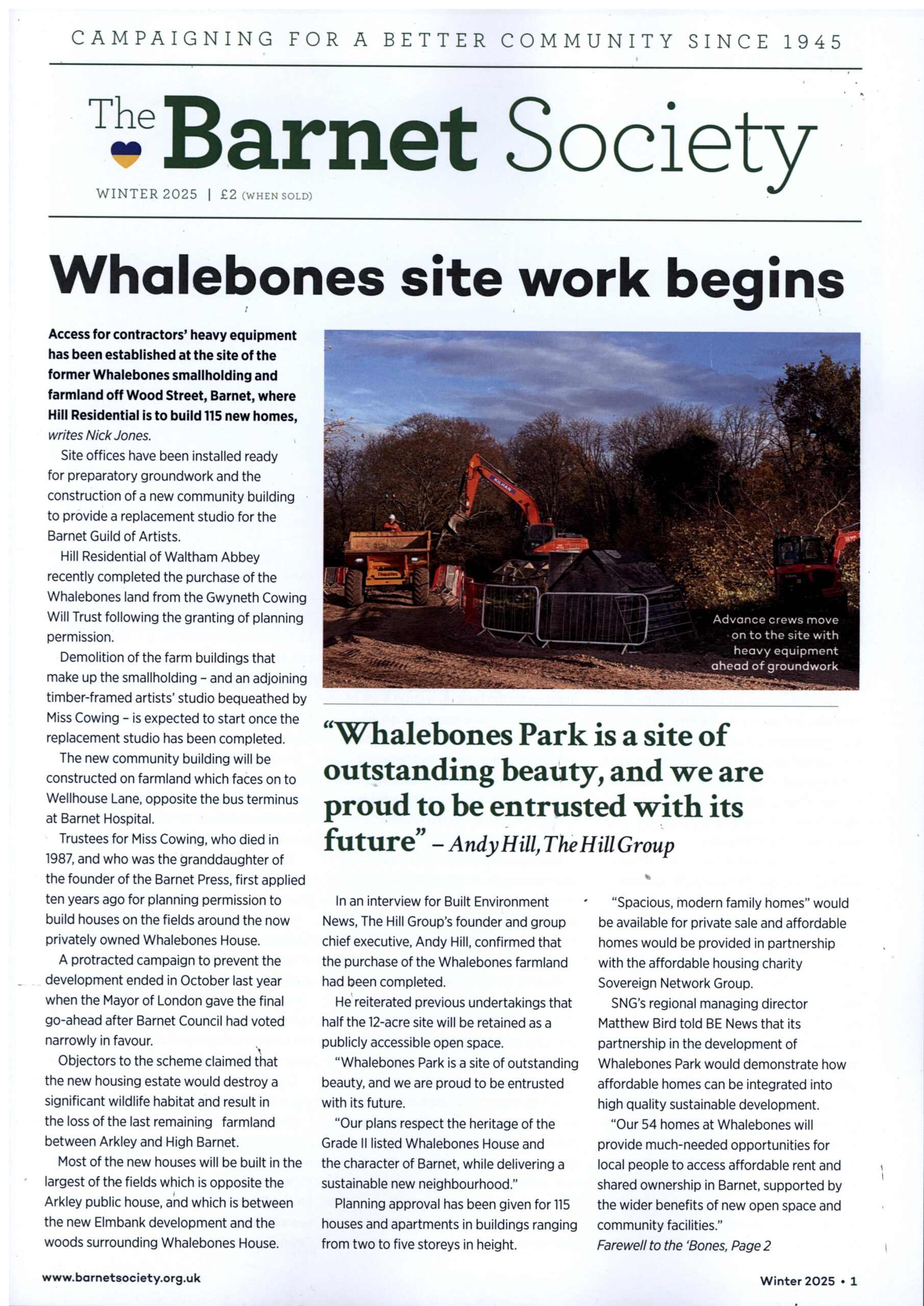
It’s not clear from this article whether this regeneration, which on the face of it seems very positive for the community, will ultimately mean fencing off these green belt playing fields from the public, preventing it from being used by anyone except rugby players.
Tarmacking over allotments, or worse, more of the green belt, for an overflow car park also seems like a very bad idea considering there is an existing car park, and the Spires for overflow on the occasion that it is needed.